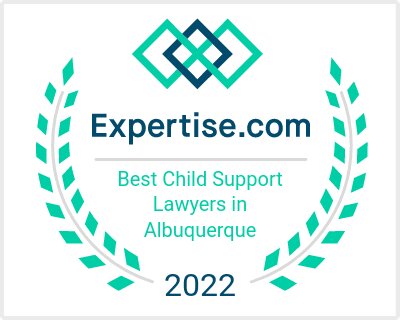Best Collaborative Law Lawyers in Albuquerque
Share your needs with us, get contacted by law firms.
Free. Takes 2 min.
Free Guide to Hiring a Family Lawyer
List of the best lawyers in Albuquerque, United States
About Collaborative Law in Albuquerque, United States:
Collaborative Law is a legal approach in Albuquerque, United States, that offers an alternative to traditional litigation for resolving disputes. It involves both parties working together with their lawyers in a cooperative manner to reach a mutually acceptable agreement. This process is often preferred by those looking to avoid the adversarial nature of court proceedings and find a more amicable resolution.
Why You May Need a Lawyer:
You may need a lawyer in Collaborative Law if you are facing a legal dispute that requires negotiation and settlement outside of court. This could include issues such as divorce, child custody, property division, or other family matters. A lawyer experienced in Collaborative Law can help guide you through the process, protect your interests, and ensure a fair outcome for all parties involved.
Local Laws Overview:
In Albuquerque, United States, Collaborative Law is governed by specific laws and regulations that outline the procedures and requirements for this type of legal process. It is important to understand these local laws to ensure that your collaborative agreement is legally binding and enforceable. Consulting with a lawyer who is familiar with the local laws can help you navigate through the process effectively.
Frequently Asked Questions:
1. What is the main difference between Collaborative Law and traditional litigation?
The main difference is that Collaborative Law focuses on cooperative negotiation and settlement, while traditional litigation involves adversarial court proceedings.
2. How long does a Collaborative Law process typically take?
The length of time can vary depending on the complexity of the case and the willingness of both parties to reach an agreement. On average, it can take several months to a year to finalize a Collaborative Law process.
3. Can any type of legal dispute be resolved through Collaborative Law?
While Collaborative Law is often used for family-related issues such as divorce and child custody, it can also be used for other civil disputes such as business conflicts, estate planning, and more.
4. What are the benefits of choosing Collaborative Law over traditional litigation?
Some benefits include cost savings, faster resolution, greater control over the outcome, and reduced emotional stress for all parties involved.
5. Is Collaborative Law legally binding?
Yes, once an agreement is reached and signed by both parties, it becomes legally binding and enforceable in court.
6. What happens if the Collaborative Law process fails to reach an agreement?
If the process is unsuccessful, both parties will need to hire new legal representation to pursue their case through traditional litigation in court.
7. How do I find a qualified Collaborative Law lawyer in Albuquerque?
You can search for lawyers specializing in Collaborative Law through legal directories, bar associations, or referrals from friends and family. It is important to choose a lawyer with experience and expertise in this area of law.
8. What is the role of a lawyer in the Collaborative Law process?
A lawyer in Collaborative Law acts as a legal advisor, advocate, and negotiator on behalf of their client. They help facilitate communication, provide legal advice, and work to achieve a fair resolution that meets the needs of their client.
9. Can I still go to court if I start the Collaborative Law process?
If either party decides to end the Collaborative Law process and pursue litigation in court, they are free to do so. However, the lawyers involved in the Collaborative Law process cannot represent their clients in court, and new legal representation will be required.
10. How much does Collaborative Law cost in Albuquerque?
The cost of Collaborative Law can vary depending on the complexity of the case, the hourly rate of the lawyers involved, and any additional expenses. It is important to discuss fees and payment options with your lawyer before starting the process.
Additional Resources:
For more information on Collaborative Law in Albuquerque, United States, you can visit the New Mexico Collaborative Practice Group website at www.nmcpg.org. This website provides resources, FAQs, and a directory of qualified Collaborative Law professionals in the area.
Next Steps:
If you are considering Collaborative Law for your legal dispute in Albuquerque, it is recommended to schedule a consultation with a qualified lawyer specializing in this area. They can assess your situation, explain the process in detail, and help you determine if Collaborative Law is the right approach for your case.
Lawzana helps you find the best lawyers and law firms in Albuquerque through a curated and pre-screened list of qualified legal professionals. Our platform offers rankings and detailed profiles of attorneys and law firms, allowing you to compare based on practice areas, including Collaborative Law, experience, and client feedback.
Each profile includes a description of the firm's areas of practice, client reviews, team members and partners, year of establishment, spoken languages, office locations, contact information, social media presence, and any published articles or resources. Most firms on our platform speak English and are experienced in both local and international legal matters.
Get a quote from top-rated law firms in Albuquerque, United States — quickly, securely, and without unnecessary hassle.
Disclaimer:
The information provided on this page is for general informational purposes only and does not constitute legal advice. While we strive to ensure the accuracy and relevance of the content, legal information may change over time, and interpretations of the law can vary. You should always consult with a qualified legal professional for advice specific to your situation.
We disclaim all liability for actions taken or not taken based on the content of this page. If you believe any information is incorrect or outdated, please contact us, and we will review and update it where appropriate.









